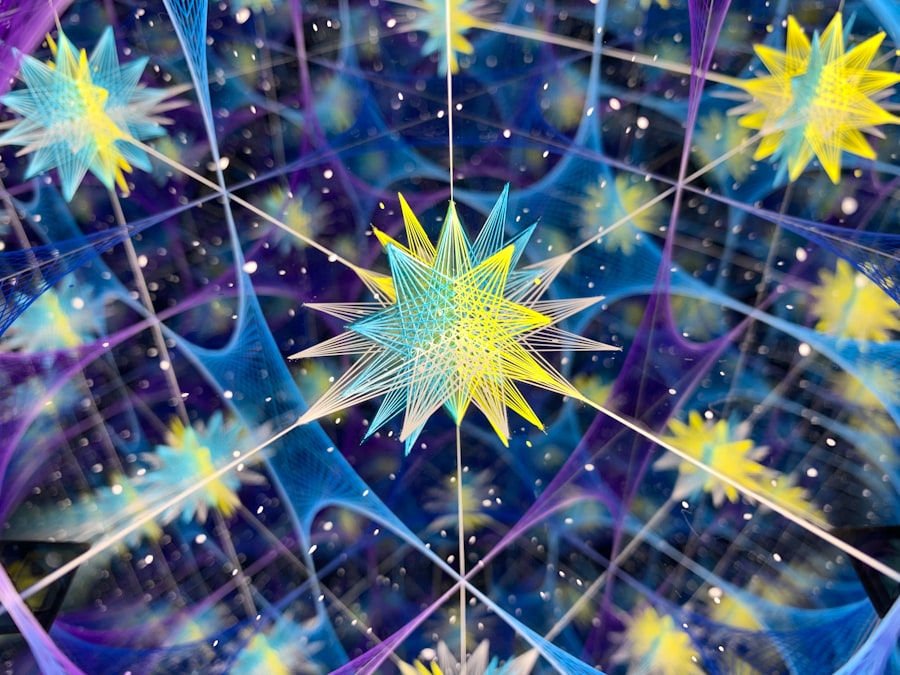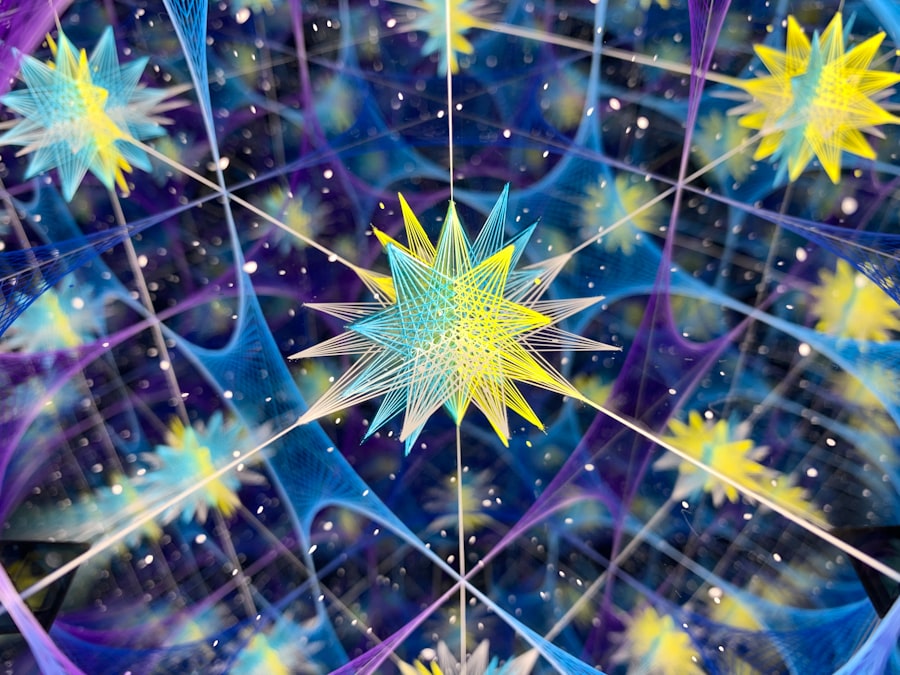Determinism is a philosophical concept that posits that every event or state of affairs, including human actions, is the outcome of preceding events in accordance with the natural laws governing the universe. This idea suggests that if one had complete knowledge of the current state of the universe and the laws that govern it, one could predict all future events with absolute certainty. The roots of determinism can be traced back to ancient philosophical thought, where thinkers like Aristotle pondered the nature of causality and the interconnectedness of events.
Over time, this notion has evolved, intertwining with scientific discoveries and philosophical inquiries, leading to a rich tapestry of interpretations and implications. In contemporary discourse, determinism raises profound questions about the nature of reality and human agency. It challenges individuals to consider whether their choices are genuinely free or merely the result of a complex web of prior causes.
As society grapples with these questions, the implications of determinism extend beyond mere academic debate; they touch upon ethics, morality, and the very essence of what it means to be human. The exploration of determinism invites individuals to reflect on their beliefs about fate, responsibility, and the nature of existence itself.
Key Takeaways
- Determinism explores whether all events are predetermined by prior causes or if randomness exists.
- Physics, especially classical mechanics, traditionally supports a deterministic universe, but quantum mechanics introduces uncertainty.
- Chaos theory shows that small changes in initial conditions can lead to unpredictable outcomes, challenging strict determinism.
- The debate between free will and determinism raises important philosophical and ethical questions about human responsibility.
- Ongoing research aims to discover universal laws that could clarify the extent of determinism in the universe’s future.
The Debate on Determinism in the Universe
The debate surrounding determinism in the universe is a multifaceted one, encompassing various fields such as philosophy, physics, and even theology. Proponents of determinism argue that the universe operates like a vast machine, where every component interacts according to fixed laws. This mechanistic view suggests that everything from the motion of celestial bodies to the behavior of subatomic particles is predetermined by prior states.
Critics, however, contend that this perspective oversimplifies the complexities of reality and overlooks phenomena that appear to defy deterministic explanations. One significant aspect of this debate is the tension between determinism and indeterminism. While classical physics largely supports deterministic views, developments in modern physics have introduced elements of uncertainty and randomness.
The implications of these findings have sparked discussions about whether determinism can truly account for all aspects of the universe. As scientists and philosophers continue to explore these questions, they confront fundamental issues about causality, predictability, and the nature of existence itself.
The Concept of Determinism in Physics

In physics, determinism has traditionally been associated with classical mechanics, where the motion of objects can be predicted with precision given initial conditions and forces acting upon them. Isaac Newton’s laws of motion exemplify this deterministic framework, allowing for accurate predictions about the trajectory of a projectile or the orbits of planets. However, as physics advanced into the realms of relativity and quantum mechanics, the deterministic paradigm began to face challenges.
Quantum mechanics introduced a level of unpredictability that seemed at odds with classical determinism. The behavior of particles at the quantum level is governed by probabilities rather than certainties, leading to phenomena such as superposition and entanglement. This shift has prompted physicists to reconsider the deterministic framework that once dominated their field.
The implications are profound: if fundamental particles do not adhere to deterministic laws, what does this mean for our understanding of causality and the nature of reality?
The Role of Quantum Mechanics in Determinism
| Aspect | Description | Impact on Determinism | Example/Metric |
|---|---|---|---|
| Wavefunction Collapse | Quantum systems exist in superpositions until measured, causing wavefunction collapse. | Introduces fundamental indeterminism; outcomes are probabilistic rather than deterministic. | Probability of electron spin up: ~50% |
| Heisenberg Uncertainty Principle | Limits precision in simultaneously measuring position and momentum. | Prevents exact prediction of particle states, challenging classical determinism. | Δx·Δp ≥ ħ/2 |
| Quantum Entanglement | Particles share states instantaneously over distance. | Suggests non-local correlations, complicating classical deterministic views. | Bell’s inequality violations observed experimentally |
| Deterministic Interpretations | Interpretations like De Broglie-Bohm theory propose hidden variables. | Attempt to restore determinism at quantum level. | Deterministic pilot-wave guiding equation |
| Quantum Decoherence | Loss of quantum coherence due to environment interaction. | Explains emergence of classical deterministic behavior from quantum systems. | Decoherence timescale: 10^-15 to 10^-9 seconds (varies by system) |
Quantum mechanics has revolutionized our understanding of the universe, presenting a challenge to classical notions of determinism. At its core, quantum theory posits that particles exist in a state of probability until measured or observed, leading to outcomes that cannot be predicted with absolute certainty. This inherent uncertainty has led some physicists to argue for an indeterministic view of reality, where events are not strictly determined by prior states.
The implications of quantum mechanics extend beyond theoretical physics; they touch upon philosophical questions regarding free will and agency. If fundamental processes are governed by chance rather than determinism, it raises questions about whether human decisions are also subject to similar uncertainties. This intersection between quantum mechanics and philosophical inquiry has sparked debates about the nature of consciousness and the extent to which individuals can influence their destinies.
Chaos Theory and Determinism
Chaos theory introduces another layer of complexity to the discussion on determinism. It explores systems that are highly sensitive to initial conditions, where small changes can lead to vastly different outcomes—a phenomenon often referred to as the “butterfly effect.” While chaos theory operates within deterministic frameworks, it highlights the limitations of predictability in complex systems. In chaotic systems, even though the underlying laws are deterministic, predicting long-term behavior becomes practically impossible due to the sensitivity to initial conditions.
This realization challenges the notion that determinism equates to predictability. It suggests that while events may be determined by prior states, our ability to foresee those events is fundamentally constrained by complexity and uncertainty. As chaos theory continues to evolve, it invites further exploration into how determinism interacts with unpredictability in both natural and social systems.
The Laws of Nature and Determinism

The laws of nature serve as the foundation for deterministic views in science. These laws describe how matter and energy interact within the universe, providing a framework for understanding physical phenomena. From Newton’s laws of motion to Einstein’s theory of relativity, these principles have historically reinforced a deterministic worldview.
However, as scientific inquiry has progressed, it has become evident that not all natural laws conform neatly to deterministic principles. The emergence of quantum mechanics and chaos theory has revealed that while certain systems may exhibit deterministic behavior, others do not adhere strictly to predictable patterns. This realization has prompted scientists to reconsider how they define and interpret the laws governing nature.
The ongoing exploration of these laws continues to shape our understanding of determinism and its limitations.
The Influence of Initial Conditions on Determinism
Initial conditions play a crucial role in determining outcomes within both deterministic and chaotic systems. In classical mechanics, knowing the initial state of a system allows for precise predictions about its future behavior.
This sensitivity underscores a fundamental tension within determinism: while events may be determined by prior states, our ability to measure and account for those states is often limited by practical constraints. As scientists delve deeper into complex systems—whether in meteorology, ecology, or economics—they encounter challenges in accurately capturing initial conditions. This complexity raises questions about the extent to which determinism can be applied in real-world scenarios and whether it can truly account for the intricacies of dynamic systems.
The relationship between free will and determinism has long been a contentious topic in philosophy and psychology. If determinism holds true—that every event is predetermined by prior causes—then what does this mean for human agency? Are individuals merely puppets acting out predetermined scripts, or do they possess genuine freedom in their choices?
Philosophers have proposed various positions on this issue, ranging from hard determinism—which denies free will entirely—to compatibilism, which argues that free will can coexist with deterministic frameworks. This debate has significant implications for ethics and morality; if individuals lack true agency over their actions, it raises questions about accountability and responsibility for one’s choices. As society grapples with these philosophical dilemmas, it must confront fundamental questions about justice, punishment, and moral culpability.
The Search for Universal Laws
The quest for universal laws that govern all aspects of reality is a driving force behind scientific inquiry. Scientists seek to uncover fundamental principles that can explain everything from subatomic particles to cosmic phenomena. This search reflects humanity’s desire for coherence and understanding within an often chaotic universe.
However, as researchers delve deeper into complex systems—whether in biology, sociology, or cosmology—they encounter challenges in formulating universal laws that account for variability and unpredictability. The interplay between determinism and indeterminism complicates this pursuit; while some phenomena may adhere to deterministic principles, others resist neat categorization. This ongoing exploration invites scientists and philosophers alike to reconsider their assumptions about causality and the nature of reality itself.
The Implications of Determinism on Philosophy and Ethics
The implications of determinism extend far beyond theoretical discussions; they permeate philosophical discourse and ethical considerations. If determinism holds true, it challenges traditional notions of moral responsibility and accountability. Individuals may find themselves questioning whether they can be held accountable for actions that were predetermined by prior causes.
This dilemma has significant ramifications for legal systems and societal norms. If individuals lack true agency over their actions, how should society approach punishment and rehabilitation? Philosophers have grappled with these questions for centuries, leading to diverse perspectives on justice and morality within deterministic frameworks.
As society continues to navigate these complexities, it must confront fundamental questions about human nature and ethical responsibility.
The Future of Determinism in the Universe
The future of determinism in understanding the universe remains an open question filled with possibilities and uncertainties.
The interplay between determinism and indeterminism continues to shape our understanding of reality, inviting exploration into uncharted territories.
Ultimately, whether one subscribes to a deterministic worldview or embraces uncertainty as an inherent aspect of existence, the pursuit of knowledge remains a shared endeavor among humanity. As individuals grapple with questions about causality, free will, and moral responsibility, they contribute to an ongoing dialogue that transcends disciplines—bridging science, philosophy, and ethics in a quest for deeper understanding within an ever-complex universe.
The question of whether the universe is deterministic has intrigued philosophers and scientists alike for centuries. A related article that delves into this topic is available at Freaky Science, where various perspectives on determinism and its implications for free will are explored. This article provides a comprehensive overview of the arguments for and against determinism, making it a valuable resource for anyone interested in the philosophical underpinnings of our understanding of the universe.
WATCH THIS! The Future Is Already Written: Why Physics Says Time Is a Lie
FAQs
What does it mean for the universe to be deterministic?
A deterministic universe is one in which all events and outcomes are determined completely by previously existing causes, following fixed laws of nature. In such a universe, given the state of the universe at one time, the future states can be predicted with certainty.
Is the universe considered deterministic according to classical physics?
Yes, classical physics, particularly Newtonian mechanics, treats the universe as deterministic. It assumes that the laws of motion and forces govern the behavior of all objects, allowing precise predictions of future states from initial conditions.
How does quantum mechanics challenge determinism?
Quantum mechanics introduces inherent probabilistic elements at the microscopic level. Phenomena such as wavefunction collapse and uncertainty principles suggest that certain events cannot be predicted with absolute certainty, challenging the classical deterministic view.
Are there interpretations of quantum mechanics that support determinism?
Yes, some interpretations like the de Broglie-Bohm theory (pilot-wave theory) propose a deterministic framework underlying quantum phenomena, though these interpretations are not universally accepted.
What role does chaos theory play in the determinism debate?
Chaos theory shows that even deterministic systems can exhibit unpredictable behavior due to extreme sensitivity to initial conditions. This means that while the system is deterministic in principle, practical prediction can be impossible.
Can we ever prove if the universe is truly deterministic or not?
Currently, it is not possible to definitively prove whether the universe is fully deterministic or not. Our understanding is limited by the interpretations of physical theories and the limits of measurement and observation.
Why is the question of determinism important?
The question of determinism impacts our understanding of free will, causality, and the fundamental nature of reality. It influences philosophical, scientific, and even ethical discussions about how the universe operates.
